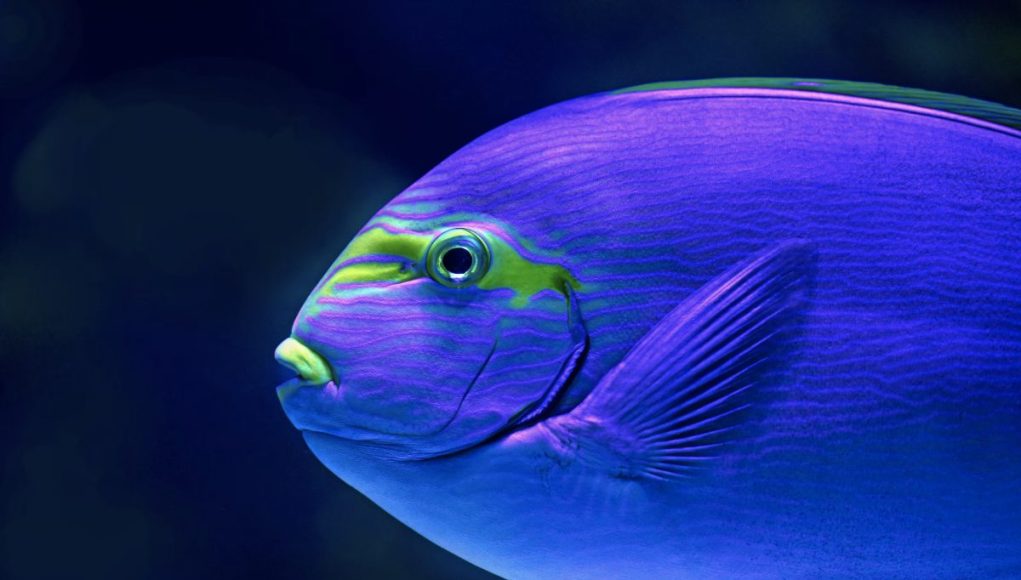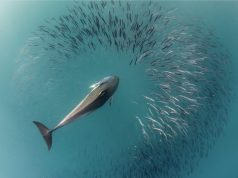INSIGHT by FAIRR
The FAIRR Initiative, alongside a coalition of five conservation and biodiversity-focused organisations has co-launched an initiative that will leverage the power of investors to engage seafood companies on critical nature and biodiversity related impacts and risks.
With the goal to eliminate overfishing, illegality and habitat conversion from seafood value chains, this new initiative will convene a group of like-minded investors to conduct targeted engagement with key seafood companies. FAIRR will be working alongside The World Wide Fund for Nature (WWF), UNEP FI’s Sustainable Blue Economy Finance Initiative, the World Benchmarking Alliance (WBA), and Planet Tracker to support the investor group to develop targeted asks and leverage their collective power to strengthen companies’ commitments to and implementation of best practice in seafood sustainability.
In its first phase, the investor action group will focus on engaging seafood companies on best practice sustainability efforts, such as: developing full-chain traceability systems, reducing bycatch and discards, reducing food loss and waste, and working towards meeting globally recognised standards. Joining the initiative will help investors to meet science-based ocean-related principles and guidance, such as those housed under the UNEP FI Sustainable Blue Economy Finance Initiative, as well as allowing them to get ahead with emerging efforts to tackle nature and biodiversity risks in their portfolios, such as the Taskforce on Nature-related Financial Disclosures.
Of the 42 asset managers whose public disclosures were assessed, only one has already developed and publicly disclosed seafood-specific environmental and social (E&S) expectations for its investee companies.
The launch of this joint effort follows today’s publication of a new report from WWF that shows despite most asset managers publicly recognizing biodiversity and natural capital impacts as risks, seafood-related risks and impacts are not, in the vast majority of cases, being addressed. Of the 42 asset managers whose public disclosures were assessed, only one has already developed and publicly disclosed seafood-specific environmental and social (E&S) expectations for its investee companies. The report – Getting Underway: 2022 Baseline assessment of asset managers’ approaches to addressing E&S risks in seafood-related investments – is a first of its kind assessment and underscores the need for more investor engagement on these issues, particularly through collaborations such as the one launched today.
Jo Raven, Director of Thematic Research & Corporate Innovation for FAIRR, commented: “Investor collective engagement is a useful tool both for driving change at the company level, and for helping investors to strengthen their own internal risk management policies and processes.”
“Over the past six years, FAIRR has worked with over 350 investors managing USD 70 trillion in AUM to collectively address issues ranging from biodiversity loss to antimicrobial resistance. We’ve seen how the collective engagement format supports pre-competitive peer-to-peer learning. We think the potential to address seafood risks in this format is huge.”
Lucy Holmes, Senior Director of Blue Finance for WWF-US, said: “Our ocean supports an overwhelming amount of biodiversity, and hundreds of millions of people depend on it being healthy, now and into the future. However, unsustainable seafood production is having a negative impact on ocean health whilst also putting its own future at risk.
“Not addressing environmental and social risks and impacts in seafood production can expose investors to financially material risks. And given the seafood sector’s immense dependence on nature and a healthy ocean, taking action on seafood is a great way for investors to begin addressing broader nature and biodiversity-related risks and impacts.”
“Not addressing environmental and social risks and impacts in seafood production can expose investors to financially material risks. And given the seafood sector’s immense dependence on nature and a healthy ocean, taking action on seafood is a great way for investors to begin addressing broader nature and biodiversity-related risks and impacts.”
Dennis Fritsch, Associate Programme Lead Nature, UNEP Finance Initiative, said: “This new initiative will help financial institutions understand how business-as-usual seafood production, distribution, and consumption negatively impacts the environment, causing biodiversity and nature loss, climate change, and human rights abuses.
“By equipping organizations with practical strategies to manage their own exposure to seafood-sector environmental and social risks, and identifying and developing sustainable investment opportunities, these efforts will support the urgently needed transition to a sustainable blue economy.”
| All opinions expressed are those of the author and/or quoted sources. investESG.eu is an independent and neutral platform dedicated to generating debate around ESG investing topics.








